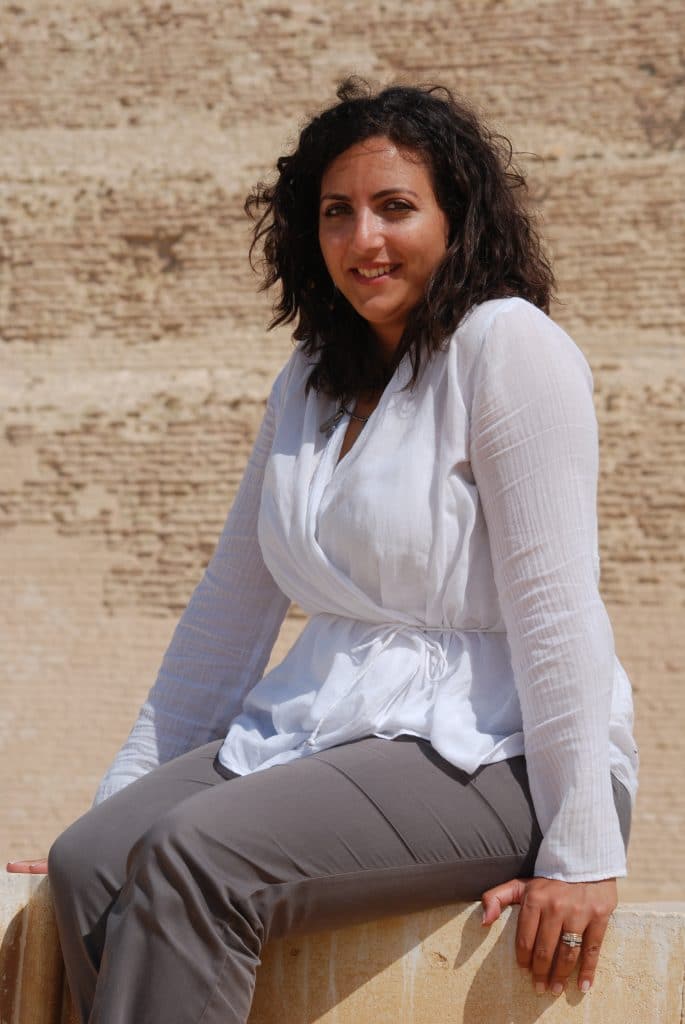
2020 PLENARY ADDRESS
Thursday, November 12, 2020
11:00am – 12:30pm EST | Online – ASOR Virtual Annual Meeting
The 2020 Plenary Address will be given by Dr. Monica Hanna, acting Dean of the College of Archaeology and Cultural Heritage at the Arab Academy of Science, Technology, and Maritime Transport (AASTMT), Aswan, Egypt.
Dr. Monica Hanna’ s research focuses on space, with particular interest on different meanings and reflections of heritage on identity of space and communities. At AASTMT in Aswan, Dr. Hanna has founded a program specializing in Archaeology and Cultural Heritage with several departments for the BA level. In Alamein, she is also creating the STEAM.LAB at AASTMT that focuses on interdisciplinary graduate research that focuses on digital heritage, cultural heritage economics and cultural property and environmental law. Dr. Hanna has received numerous awards including the SAFE Beacon Award (2014) for her efforts in the salvage of antiquities under conflict, and was named by UNESCO the Monuments Woman of 2014.
Does the Future of the Past Lie in the Hands of the Living?
This talk will discuss the different stakeholders of heritage with a focus on the Middle East and Africa and the relationship with the West. Community and Public Archaeology as disciplines have evolved to focus on creating meaning, relationships and engagements with the past. But then, which past are the indigenous communities engaging with? The past written by colonizers, the past written for different stakeholders, or the past claimed by the different groups? Community archaeology in many places has proved a success, while in other places is still struggling because of several reasons. I will overview some case studies of how the different communities in the region relate or contest their past. Furthermore, I will touch upon how expat communities relate to their national heritage abroad. For example, how does the Egyptian community in Berlin relate to the bust of Nefertiti in the Neues Museum, and the Iraqi community relate to the Code of Hammurabi in the Louvre or the Benin and Nigerian communities in New York to the Pendant Mask of Benin? In addition, with the political unrest after the Arab Spring, some of the refugee communities are interacting more with heritage while others are becoming oblivious to it. The talk questions how tourists interact with objects that are from other cultures and are exhibited in Western museums versus the interaction with heritage in context. With the development of archaeological ethics and heritage politics, this talk will also discuss how and why the different stakeholders and communities of heritage are interacting with the discourse. Heritage engagement, of course, does not happen devoid of heritage inequalities that infringe on human rights in various degrees. Heritage interaction became of wider interest when world communities changed completely how they related to heritage during the COVID-19 lock down. The interaction with the past perhaps created a new world equality (or inequality) of accessibility to heritage. This finally brings us to how we can “build bridges for future equitable relations” as an orientation for the prospect of the heritage and communities.
